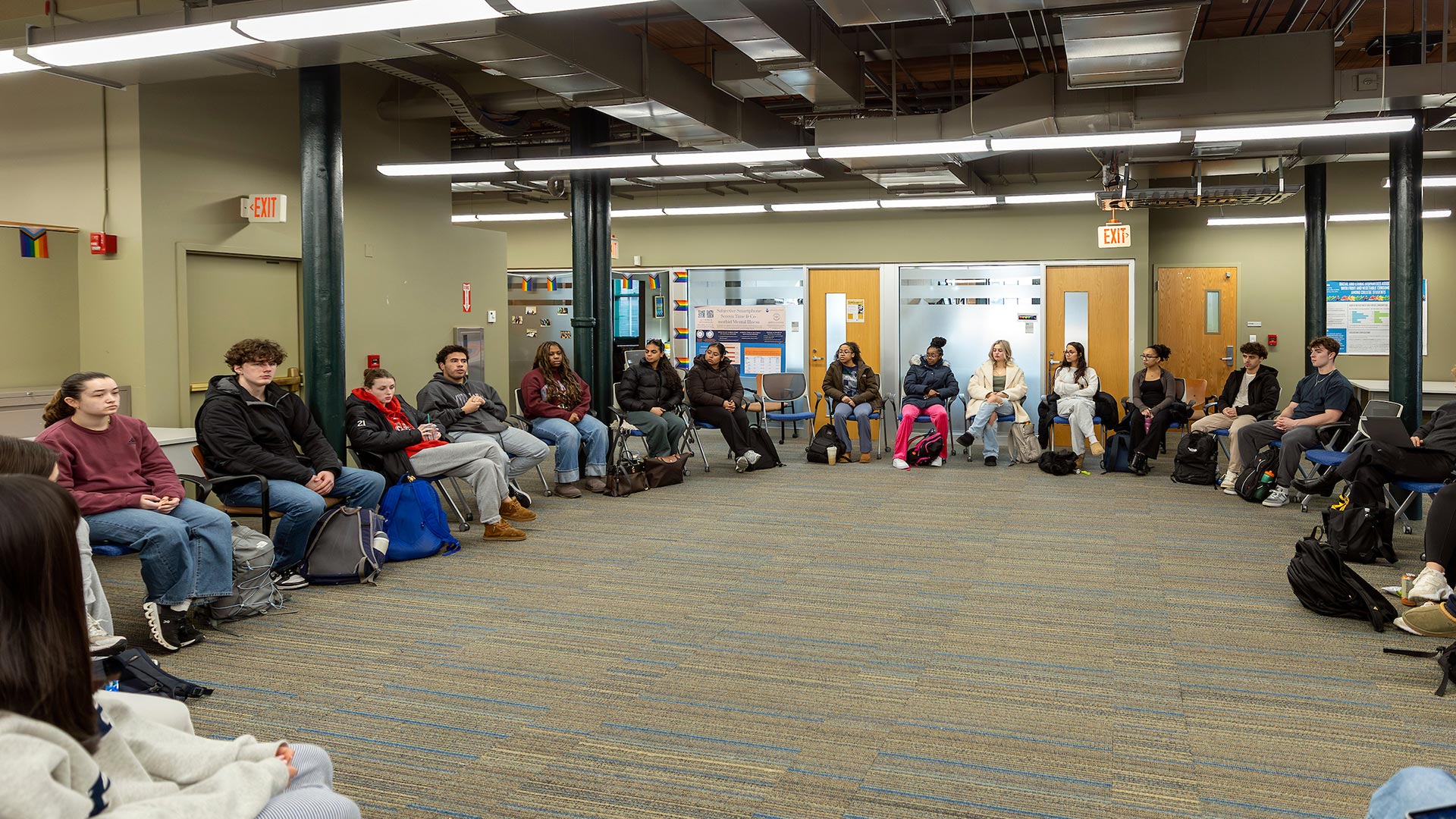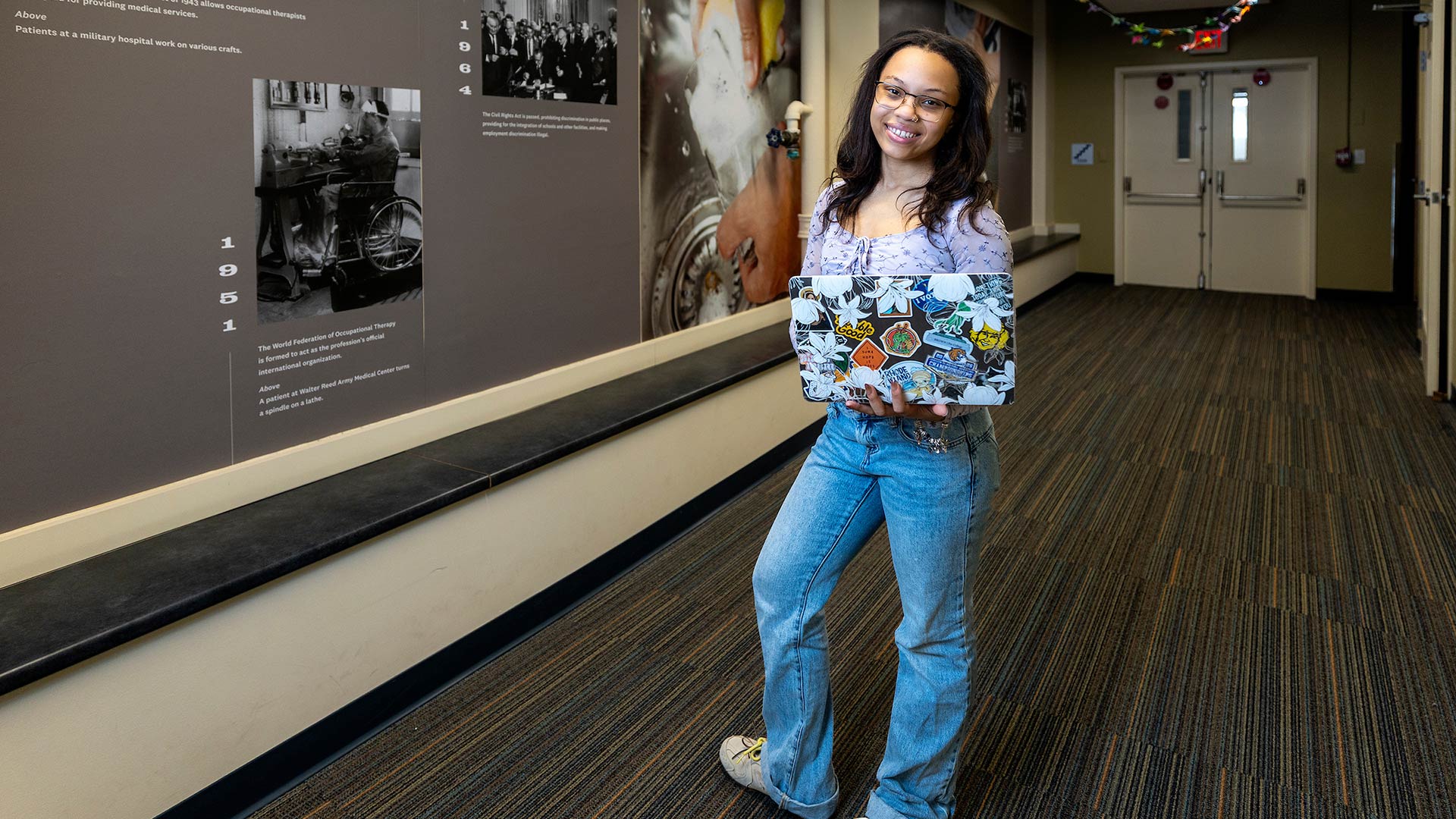Putting Occupational Therapy Lessons into Practice
Editor’s Note: As of Summer 2025, Johnson & Wales University integrated the College of Engineering & Design into the John Hazen White College of Arts & Sciences. This change reflects the university’s ongoing efforts to align programs with student interest and industry demand.
Unlocking your front door or turning the page of a book are two things you do every day with minimal effort, probably without even thinking.
However, actions such as these could be difficult for someone struggling with arthritis or with limited mobility.
But hope and innovation intersect at Johnson & Wales University, where Occupational Therapy Doctorate (OTD) Program students work side by side with fellow Engineering & Design classmates on practical learning and solutions. Such cross-disciplinary collaboration is commonplace at JWU—and transformative.
Occupational Therapy Doctorate (OTD) Program Director Nancy Dooley, Ph.D., said, “The more types of professions our students get to work with, the more they see how their skills can be applied in different ways, and it helps others know what we can contribute.”
Interdisciplinary Learning in Action
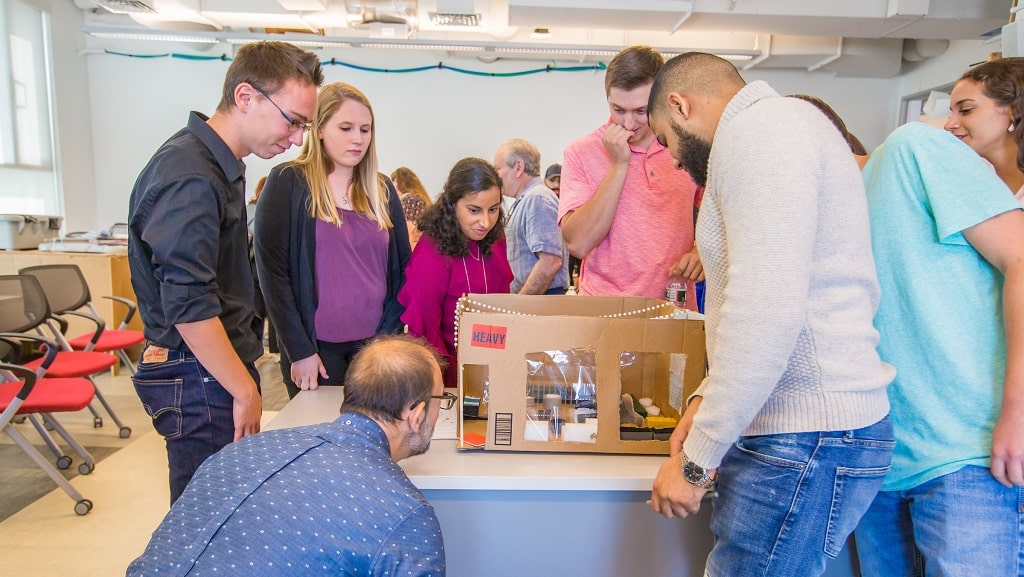
STUDENTS LEARN ACROSS MAJORS ALL THE TIME AT JWU. HERE, OTD AND DESIGN STUDENTS CONCEPTUALIZED A COFFEE SHOP IN 2019.
OTD students at JWU regularly work in partnership with programs across JWU’s several different colleges and students like those in Assistant Professor Jonathan Harris’ User-Centered Design course.
This spring, Harris split his students into groups of two to come up with prototypes that would be useful to OTD clients: an elderly woman suffering from arthritis that prevents her from turning her key to enter her home; a person with limited mobility in half of their body who wants to be able to read an actual book on their own and more. The design students worked with OTD students, went through research and exploration, and moved designs they decided upon to the prototype phase.
“[Design students] knew some people can't use their hands in a certain way, but they didn't know very much detail behind that,” Dooley said.
Dooley also said this assignment forced students in the occupational therapy program to think about their work in a more substantial way and present these client challenges so that design students could utilize that information to create their products.
It’s just one example of cross-college collaboration the OTD program explores. They also worked this spring with Mental Health Counseling students to address the needs of a case-study patient.
“[This allows] the students to demonstrate an understanding of differences in the scope of practice while determining the needs of a patient, then work collaboratively to apply skills they would use to assist the patient's needs,” Mental Health Counseling Assistant Professor Yesim Giresunlu, Ph.D., said.
Read More:
>>> Reaching Across the Barn: OTD and Equine-Assisted Therapy
>>> Going Green: OTD Students Explore Dietetics
OTD Program Graduates First Class of Students
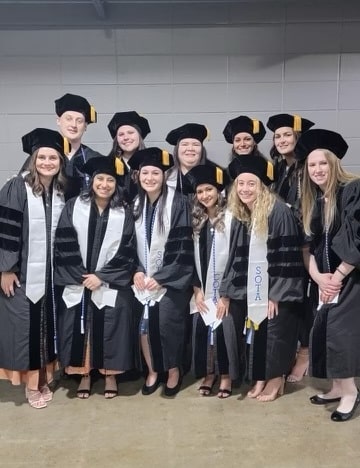
All this teamwork lends itself to gained experience that OTD students can take with them into their professional lives post-JWU, a path that 11 graduates will embark upon this May as the first graduating class in JWU’s OTD Program.
“It's such a great milestone,” Dooley said. “We're very excited for them to get out in the world because they've been breaking ground with us for the last three years.”
OTD students spend much of their time translating what they learn from labs and the classroom into community placements and fieldwork — something Dooley says this cohort has thrived in.
“We're really excited that they're going to be out there as ambassadors for us,” Dooley said.
About the OTD Program at JWU
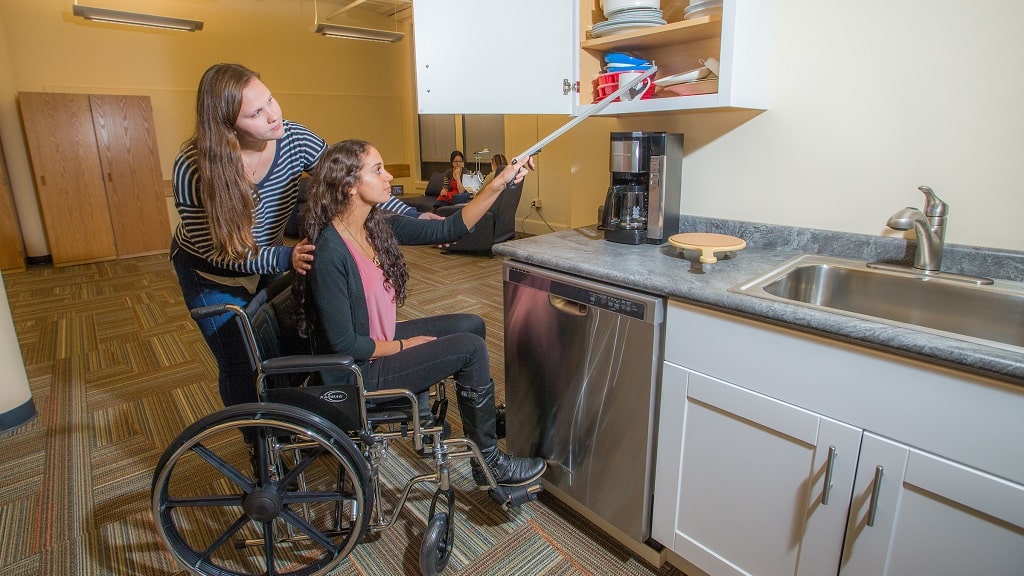
INCREDIBLE LAB SPACES LIKE THIS HOME SETUP BRING LEARNING TO LIFE FOR OTD STUDENTS.
Johnson & Wales welcomed its first cohort of students to the entry-level occupational therapy doctorate degree in 2019. It was the first of its kind in Rhode Island. The full-time, 36-month accredited program includes education and training with renowned faculty in state-of-the-art labs that simulate hospital and clinical settings, as well as spaces dedicated to pediatrics and a home-like environment.
Read More:
>>> Occupational Therapy Doctorate (Entry-level OTD) program information
>>> Rhode Island Free Clinic, Johnson & Wales University Announce Partnership
